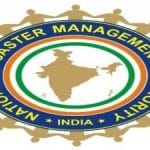The Government is in the process of ordering a complete restructuring of the organisations responsible for regulating the use of water resources.
Objective:
- To bring in greater efficiency, better planning and increased emphasis on conservation of water.
- To ensure that all water resources in the country are managed in a holistic manner and not separately as surface water, ground water or river water.
- Efforts will be made to move away from engineering solutions like construction of large irrigation projects towards more sustainable ways of water use.
Mihir Shah Report
- A team led by Mihir Shah has prepared a blueprint for better management of water resources.
- It is the third major report that has been issued on the restructuring of CWC since 2000.
- The committee on restructuring the Central Water Commission (CWC) and Central Ground Water Board (CGWB) has recommended a National Water Commission (NWC) to be established as the country’s apex body dealing with water policy, data and governance.
- The key recommendation is to shift focus from construction to decentralized management and maintenance in order to ensure ‘har khet ko paani’ under the Pradhan Mantri Krishi Sinchai Yojna.
- It has recommended a major overhaul of the current water management systems. A paradigm shift was required in both surface and groundwater management policies to face new national challenges.
- The report says that the existing institutions are inadequate to address our water needs, so India needs an overarching water commission. It emphasizes on the importance of an integrated policy for groundwater and surface water.
- The CWC and the CGWB were set up in an era when India was yet to create it’s irrigation potential. They also have a lack of professionals.
- While big dams played a big role in creating a huge irrigation potential, today the challenge is to effectively utilize this potential, as the water that lies stored in our dams is not reaching the farmers for whom it is meant.
- At the same time, ground water, which truly powered the Green Revolution, faces a crisis of sustainability. Water levels and water quality have both fallen with Arsenic, Fluoride and even Uranium contaminating it. The new challenge is to manage our aquifers sustainably.
- The proposed National Water Commission (NWC) will be a science-led agency to advise the states on how much water they can use without affecting rivers and groundwater, taking surface and groundwater usage as a single entity.
- It will subsume the CWC and CGWB.
- The CWC, established in 1945, is in charge of surface water, oversees irrigation projects, flood management and drinking water supply.
- The CGWB is tasked with managing groundwater.
- A few other organizations with specialized mandate like data gathering and analysis are also likely to be created.
- It recommended that the NWC be headed by a chief National Water Commissioner and should have full time commissioners representing hydrology, hydrogeology, hydrometeorology, river ecology, ecological economics, agronomy ( with focus on soil and water) and participatory resource planning & management. In short, it will build partnerships with independent experts and civil society groups for participatory management of water resources.
- The NWC will be a knowledge institution providing solutions to water problems faced by State governments, farmers and other stakeholders, on demand, in a user-friendly manner.
- It will be an adjunct office of the Ministry, functioning with both full autonomy, and requisite accountability.
- The Central Water Engineering Services unit of the CWC will be sent to regional offices of the proposed NWC to manage the distribution of water from dams to farmers in the field, which would involve the formation of water user associations and water audits emulating the Gujarat, Madhya Pradesh and Andhra Pradesh models.
- The restructuring is expected to be completed this year itself.
Focus
- More emphasis will be given to judicious use, and conservation, of ground water.
- Adequate attention had not been given to management of ground water till now, leading to indiscriminate pumping of ground water. It is estimated that despite elaborate irrigation projects, about 60% of irrigation during the non-rainy season is still done by pumping out ground water. The large irrigation projects have given sub-optimal results.
- The country must look towards a future in which ground water is completely banned for industrial use at least.
- A large number of sewage treatment plants, being built as part of the Clean Ganga initiative will eventually spread to other rivers as well. They will provide a new source of water that is fit not only for industrial use but also for irrigation and other purposes.
- The river rejuvenation plans will become an integral part of overall water resources management. Apart from reducing pollution in the rivers, and maintaining a minimum ecological flow, the rejuvenation plans would also ensure that the rivers are able to adequately recharge the aquifers in its basins.
- Allocation of water resources to each state aimed at reducing inter-state water disputes is also on the agenda. But the process would involve extensive consultations with the state governments, hence, will take time.
- The recommendation is much more concerned with the challenge of ensuring that the water stored in dams, actually reaches the farmers.
- It can give us an increase of millions of hectares of irrigated area at a much less cost than the river interlinking project and in much less time, avoiding all inter-state conflicts, land acquisition problems and corruption.
- The focus will be on the completion of ongoing projects, management of the potential created so far and community participation for integrated irrigation Management Transfer (IMT)
- The NWC will enable state governments to implement irrigation projects in reform mode, take a lead in national aquifer mapping and groundwater managment and take steps to insulate agrarian economy and livelihood systems from the effects of drought, floods and climate change and move towards sustainable water security.
Arguments
- Civil engineers and hydrologists are arguing that water is a state subject and such reforms will go against the spirit of federalism. But as per the report, a decentralized NWC will not interfere with the federal structure, as it will be a facilitating body, acting in response from demands of primary stakeholders, including state governments, gram panchayats and common citizens.
- CWC engineers oppose the report saying that India can meet its food and water security requirements only through the development of surface water through the construction of dams.
- For the Shah report’s observations about major countries moving away from building large dams, the engineers argue that these countries have finished with the creation of per capita storage and can afford to be in the water management mode.











